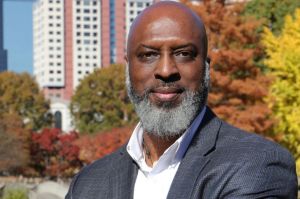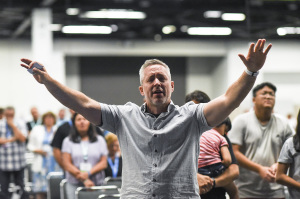Churches Step Out in Faith Amid Economic Challenges
During an economic downturn, pastors of some of the largest Protestant churches in the country may be cutting their budget but few are scaling back their vision. Many are instead stepping out in greater faith.
Benny Perez, founder of five-year-old The Church at South Las Vegas in Henderson, Nev., has seen the toll the economic challenges have had in his community and on his church. Las Vegas has been hit "tremendously hard," he says, as it had one of the highest foreclosure rates in the nation.
"Our city is being rocked by this," he said in a recent interview featured by Leadership Network.
Although Perez pastors the fastest-growing church in the city and saw higher attendance numbers this year, giving went down approximately 10 to 12 percent at his church.
In response, The Church at South Las Vegas has cut back its budget, Perez has preached on biblical events that show how God and His people responded to famine, and congregants have received assurance that God is able as well as financial counseling and guidance on priorities.
"I told my church this: when you go through a lean time, all it does is just cause you to think about your priorities in your life," said Perez, who also noted that for some people, cutting back means not having a Starbucks drink everyday.
"Is that really sacrifice? I don't think so," he continued. "I don't think we really understand sacrifice in America. This is my perspective. I think it's causing people to actually think about life and what's really really important."
And it has caused the Henderson church to prioritize as well. While making some spending cuts on things that are not really necessary, Perez has refused to cut back on the church's vision to reach people. Even during these hard times, the Henderson church launched a capital campaign and is breaking ground on a new building – a project that will cost $12.5 million.
"In the midst of challenges and with the down of our income as a church, we had to step out in faith," Perez said. And Perez has seen a responsive flock, with one person handing him nearly $1 million in cash.
"People give to vision. They don't necessarily give to need," he highlighted.
His comments came at the release of Leadership Network's biannual survey on church salaries.
Surveying 105 churches from 30 states that ranged from 1,400 attendants to 10,000, the study's authors, Warren Bird and Dave Travis, found that these churches are still considering major fund drives in the coming year.
Thirty percent of the responding churches said they are planning for a capital funds drive for new property or building for 2009. The statistic is down from 2006 when 44 percent were considering a drive for new facilities, but among churches in the 5,000 to 6,999 attendance range, 44 percent of them are planning on one.
Also, 25 percent of all responding churches said they will do a fund drive for the poor or needy in their community and 23 percent plan to plant multiple new congregations.
And despite the economic downturn, the majority of churches (74 percent) expect their income will increase next year while 12 percent expect smaller income. The total current budget of surveyed churches averages $6.1 million.
Regarding expenses for 2009, churches anticipate moderate and significant increases in spending on facilities (26 percent), followed by missions giving (20 percent), information technology (16 percent), staff salaries (14 percent), communication (13 percent), program (10 percent) and staff continuing education (4 percent).
And as churches continue to grow, 52 percent anticipate adding 1-4 staff, 22 percent project adding more than 4 staff, 15 percent report planning no changes, and 11 percent are planning staff reductions.
Scott Wilson, senior pastor of The Oakes Fellowship in Red Oak, Texas, had to make some staff cuts as the 3,000-member congregation moved into a $20 million new sanctuary and is soon to launch a $6 million new location – its third campus.
Instead of relying on more staff to manage the growth, Wilson hopes more people will step up as volunteers.
"We can't keep just hiring staff after staff ... to handle the ministry growth," he said. "We've got to have volunteers stepping in."
The Oakes Fellowship's bold moves amid economic challenges show how large churches are taking leaps of faith.
"Make decisions that make sense for the long term, not just the short term which is the greater efficiency," Wilson said. "Don't go for the 'easy' way when God may be wanting to grow you up in the lean times to actually become more lean and stronger in the end."
The Leadership Network study's authors highlighted that the churches "are going forward, growing, and reaching out" and seem to "reflect much hope for the months ahead."
Among other findings in the survey, which was conducted in May and June, 85 percent of the churches said they have an active stewardship or generosity ministry that includes both teaching and preaching on topics related to finances.





























